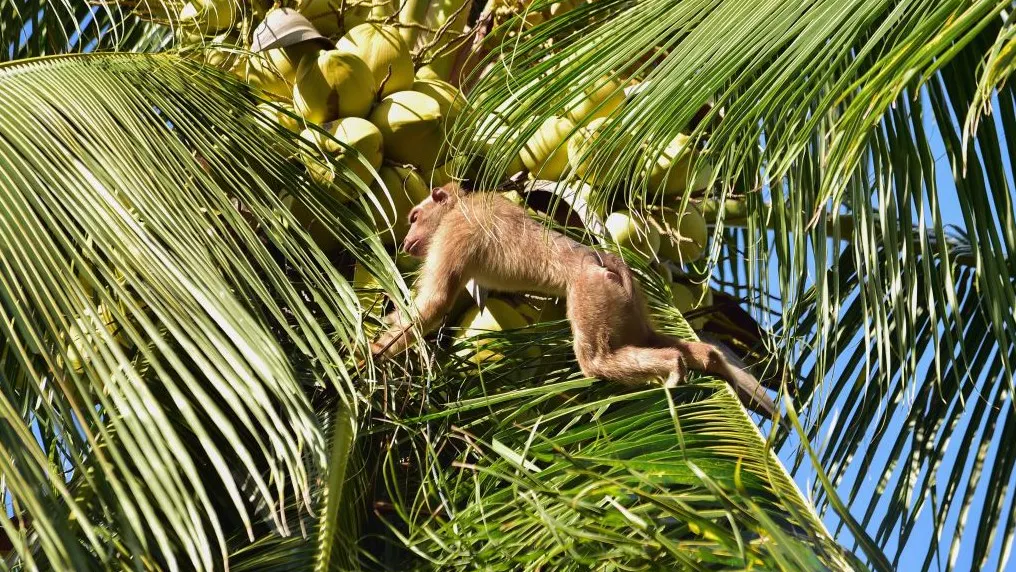Where do all those coconuts come from?
Some get plucked off of trees by monkeys, who were captured by trappers and forced into labor.
Amid calls to boycott products that use monkeys, the mega-store chain Costco has pledged not to stock coconut products from Thai suppliers who are accused of using monkeys, officials from the People for the Ethical Treatment of Animals (PETA) told USA Today.
Costco follows the lead of other big chains like Walgreens, Food Lion, and Giant Food, all of which stopped stocking several brands of coconut milk after PETA charged that monkeys in Thailand were being used to pick coconuts.
PETA applauded the move.
“No kind shopper wants monkeys to be chained up and treated like coconut-picking machines,” PETA President Ingrid Newkirk said in a statement. “Costco made the right call to reject animal exploitation, and PETA is calling on holdouts like Kroger to follow suit.”
USA Today quoted a letter from Ken Kimble, Costco’s vice president and general merchandise manager of corporate food and sundries.
“We have ceased purchasing from our supplier/owner of the brand Chaokoh,” Kimble wrote in the letter dated September 29. “We will continue to monitor the implementation of the harvest policies and once satisfied will resume purchasing.”
According to an investigation by PETA, monkeys were found chained up so they can’t escape and are kept in small cages overnight, the paper reported. The monkeys can pick upward of 400 coconuts per day.
Monkeys are all around Thailand and are used by Thais to retrieve coconuts. The Tourism Authority of Thailand’s also promotes a “Monkey Center” where “tourists can watch the primates learn how to collect coconuts for 300 baht, or about $10. Kids can catch the show for just 150 baht, or about $5,” the New York Post reported.
“The Monkey Center is established and has turned into a new tourist attraction which becomes popular among local people and foreigners. In the center, the monkeys will be trained to collect the coconuts. Each training session takes about 4 months and requires a trainer and a student,” the tourism authority’s website reads. “Moreover, you can enjoy other monkey shows in the center.”
Meanwhile, Theppadungporn Coconut Co. Ltd, which makes Chaokoh, denies using monkey labor, the paper said.
“Chaokoh, one of the world’s leaders in coconut milk production, reassures that we do not engage the use of monkey labour in our coconut plantations,” the company said, adding that its suppliers have “signed memorandums of understanding” that monkey labor will not be employed.
Other food products have come under fire, but mostly as part of the politically correct climate. Quaker Oats announced this summer that it would be removing Aunt Jemima from its 133-year-old brand of syrup and pancake mix, and then the company that makes Cream of Wheat said it would move to rebrand its packaging, which features a black chef holding up a piping hot bowl of cereal.
Related: Uncle Ben’s Rice To Take Black Man Off Box; Cream Of Wheat Mulls Removing Black Chef

.png)
.png)

